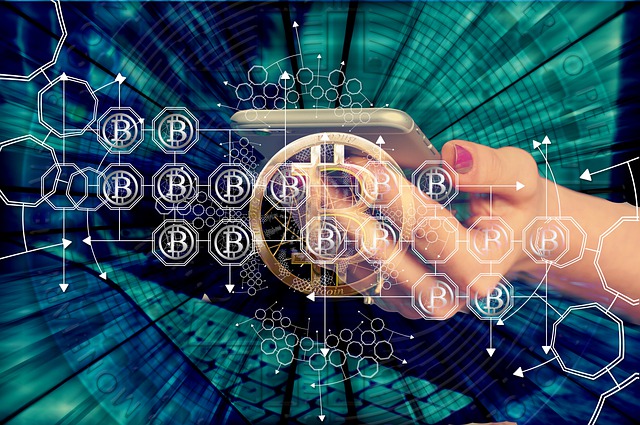Can I Invest in Bitcoin? How Does it Work Exactly?
Image by Gerd Altmann from Pixabay
Bitcoin is a digital or virtual currency that uses peer-to-peer technology to facilitate instant payments. Bitcoin is a cryptocurrency and a payment system invented by Satoshi Nakamoto. Transactions are verified by network nodes through cryptography and recorded in a public dispersed ledger called a blockchain. Bitcoin is unique in that there are a finite number of them: 21 million.
- Bitcoins are created as a reward for a process known as mining. They can be exchanged for other currencies, products, and services. As of February 2015, over 100,000 merchants and vendors accepted bitcoin as payment. Research produced by the University of Cambridge estimates that in 2017, there were 2.9 to 5.8 million unique users using a cryptocurrency wallet, most of them using bitcoin.
- Bitcoin has not gained acceptance for use in international remittances despite high fees charged by banks and Western Union who compete in this market. Unlike bitcoin, these competitors accept and dispense cash and do not require the use of the internet which is a distinct advantage in lower-income countries.
- Bitcoin can be purchased through an online exchange, through a brokerage service, or directly from someone who has them. Bitcoins are sent to a wallet by using software running a Bitcoin node written for that purpose. Bitcoins can be obtained by mining using a computer, workstation, or specially configured hardware. Bitcoins are also earned through the process of Bitcoin mining by a computer processor doing mathematical calculations that allow a certain amount of data to be processed each time they solve a mathematical problem that fits the required parameters.
- Bitcoin can be exchanged for other currencies at special Bitcoin exchanges. One such machine is operated by Robocoin, formerly Bitcoiniacs.
- Since Bitcoin has no repository or single administrator, and since all of the software that mines Bitcoin is open source, it is considered to be a decentralized currency that is not overseen by any central authority. The network is peer-to-peer and transactions take place between users directly through the use of cryptography without an intermediary facilitating the transaction. These transactions are verified by network nodes through cryptography and recorded in a public distributed ledger called a blockchain which uses bitcoin as its unit of account.
- Bitcoin can also be held as an investment. While traditional investments require some form of expertise in their selection, whether stocks, bonds, or estate, Bitcoin can be purchased with no expertise.
- A user can store Bitcoin in a wallet and use the Bitcoin to buy items from any business that uses either Bitpay or Coinbase as payment processors. Accepting Bitcoin requires no effort beyond adding a line of text to a website, for example: “This article is available for purchase in Bitcoin”. Such websites are referred to as ‘Bitcoin merchants’ or ‘Bitcoin stores.’ The user can then make purchases with the Bitcoin stored in their wallet at such stores. A person may also send some BTC to another person using mobile apps like Airbitz, Mycelium Wallet, Breadwallet and Copay.There is something peculiar about real bitcoins Quantum AI trading platform that you can see in pictures. Without the private codes written in them, they are useless.
So how does it work?
I will explain this by making an analogy. Imagine that the US Dollar is a big library. Every time you take a book from there, they keep track of it in one file called “ledger”. That ledger has all the history of its own transaction as well as any other transactions taking place at that moment using dollars like buying products, services, or even another currency.
Now imagine that there are more libraries around the world (like Bitcoin) that can track dollar transactions on their ledgers too. And then if I am to send some money to someone else across the oceans, I simply tell my library (which keeps track of my spending) to transfer some funds to your account and voilà! The transfer is finished instantly without moving physical cash anywhere because your local library has an accurate record of the transactions.
Using bitcoin poses several challenges that do not affect other internet services such as e-commerce or online banking. Of these, an important one is that it requires the user to install and run a client which downloads the entire transaction history of bitcoin and then continuously updates itself with what is currently happening in this network. If you use a smartphone for all your activities, it will be hard to manage and bear this additional cost for no added benefit.
For use on a computer or tablet, managing this software may be cumbersome and overly complex because the amount of data being transferred across high latency networks while browsing can be impossible if your location does not have enough disk space to hold a complete copy of all current transactions.

